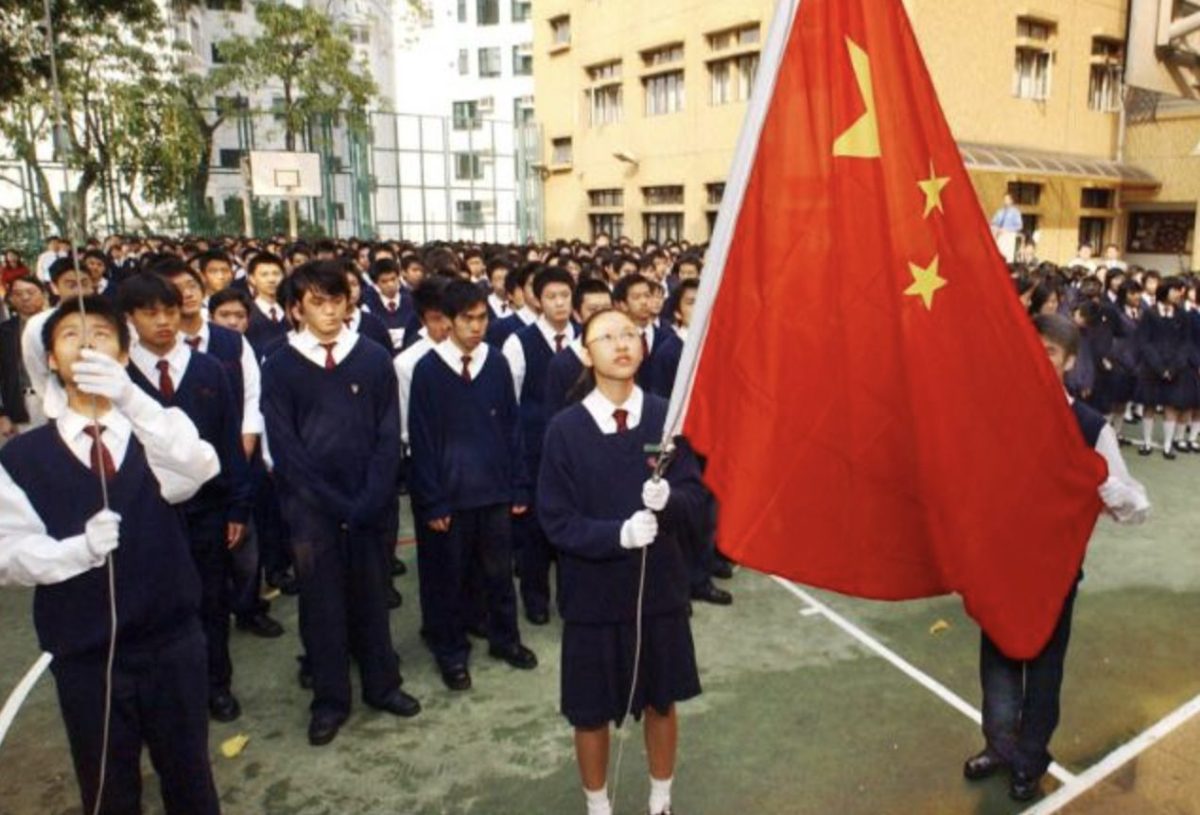[ad_1]
Hong Kong’s Education Bureau is set to replace liberal studies with a new program that will require students to learn about China’s latest achievements and toe the line on national security.
Liberal studies, launched in 2009, would be replaced by a new subject in September, Chief Executive Carrie Lam said before the weekly Executive Council meeting on Tuesday. The new subject would not be called “national educationâ€, she said.
Lam said liberal studies had been running for a decade with many problems caused by the policy of “no curriculum and textbook.†She said the Hong Kong government was determined to improve education for the next generation and reform liberal studies.
She said the Education Bureau would provide support and training courses for teachers during the “reform.â€
Secretary of Education Kevin Yeung said on Tuesday that the government was discussing with publishers about printing textbooks for the new subject. Yeung said the Education Bureau would review and approve all the related textbooks.
He said fourth-year secondary students would first study Hong Kong’s political systems, the Basic Law and China’s Constitution Law. He added that in future students would learn about national security issues and have to agree that “national security must be safeguarded.â€
Yeung said teachers should stop students from joining illegal activities or schools would have to seek help from law enforcement departments.
Since September 2009, liberal studies has been compulsory for senior secondary school students, including those in their fourth to sixth years, and emphasizes critical thinking. It consists of six modules, comprising Personal Development & Interpersonal Relationships, Hong Kong Today, Modern China, Globalization, Public Health and Energy Technology & the Environment.
In May 2012, the government proposed moral and national education for primary and secondary students. The subject was aimed at increasing young people’s sense of national identity and encouraging them to contribute to China’s development. In September of that year, the government withdrew its plan after more than 100,000 people protested against the proposed change.
Since anti-extradition protests broke out in June 2019, pro-Beijing newspapers and politicians have blamed liberal studies for “brainwashing†students to take to the streets to rally against the government.
In July 2019, Wen Wei Po, a pro-Beijing newspaper, criticized a local school for issuing an examination paper that allegedly spread hatred towards the police. In the paper, a comic showed a protester surnamed Wong occupying a street to demand “one person, one vote†for chief executive while being arrested by police. Students were asked to “explain the advantage of the electoral system Mr Wong fights for†in the test.
In May 2020, a history exam paper asked students whether Japan did more good than harm to China between 1900 and 1945, a period when Japan occupied parts of the mainland. Students were allowed to take either side and make their points.
The Education Bureau banned the question and criticized those who compiled it. The bureau said the only answer to this question was that “Japan’s invasion of China must be condemned.†Pro-Beijing politicians said these kinds of biased questions frequently appeared in liberal studies teaching materials.
Last November, Chief Executive Lam said in her fourth Policy Address that the government would revamp liberal studies. According to the Education Bureau, the subject will be renamed “Civil and Nation,†“National and Society,†“Civil and Social Development†or something else. It aims to help students develop positive values and attitudes towards life and increase their national identity. Class time will be reduced from a previous 220 hours for liberal studies to about 150 hours.
Tin Fong-chak, vice president of the Hong Kong Professional Teachers Union, said liberal studies “reforms†would relaunch national education to contain only positive information about China. Tin said if students were not allowed to think critically and hold different views, the new subject would be tantamount to political propaganda.
Tin warned that teachers could be accused of professional misconduct or breaking the law if they refused to use the new official teaching materials.
Michael Wong Wai-yu, an honorary executive secretary of the Hong Kong Association of the Heads of Secondary Schools, said it was questionable whether the revamp of liberal studies could change the views of young people who now get news and information on the internet.
Wong said that teachers had spent considerable time and effort to make teaching materials but they were nonetheless criticized by the government as “problematic.†He said launching the new subject in September would be overly rushed without sufficient time for preparation and discussion of the topics.
Tam Ka-yan, chairperson of the Curriculum Development Council, said the new subject would consist of three topics including “One Country Two Systems in Hong Kongâ€, China’s Reform†and “Opening-up and the Interconnected Modern World.â€
Tam said the first two topics would consume two-thirds of the total class hours and focus on China’s latest developments. He added that students would be required to visit mainland China as part of the course, but details had not yet been confirmed.
[ad_2]
Source link














